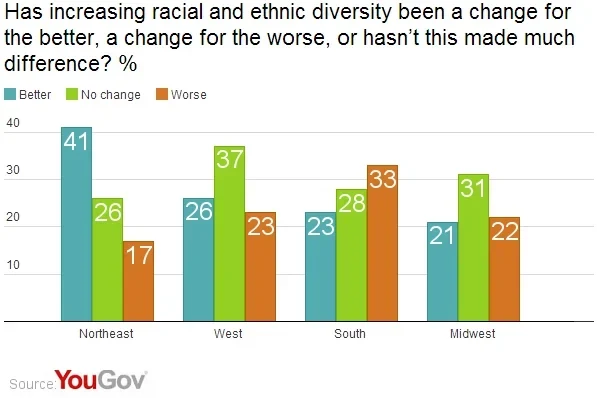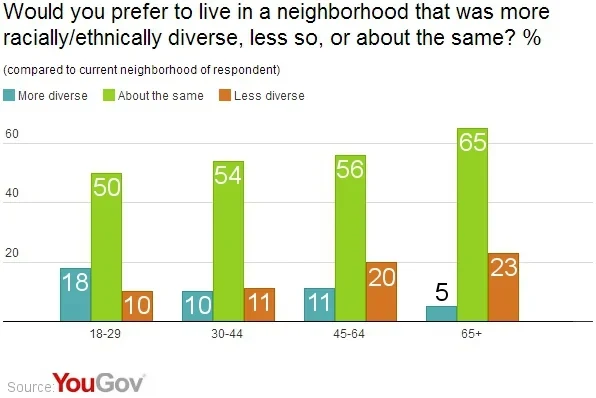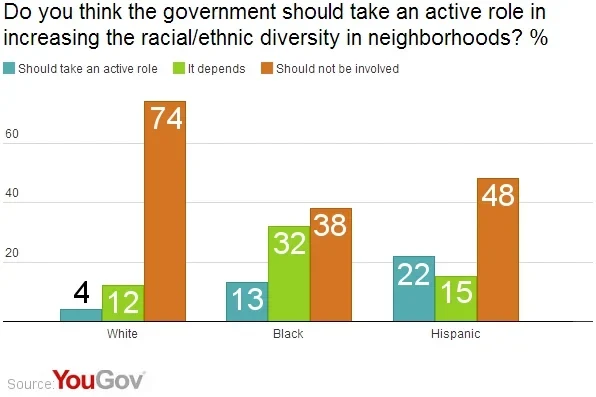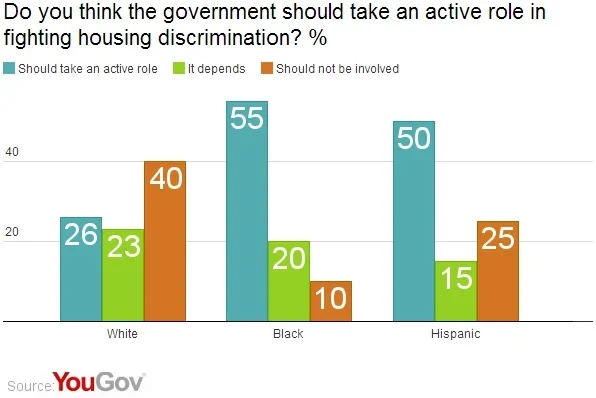People in the Northeast are significantly more likely to think that increasing racial and ethnic diversity has been a good thing, while younger people are the most likely to want to live in a diverse neighborhood.
Growing attention is being paid to the increasing diversity of American cities and neighborhoods, with studies showing that while diversity in neighborhoods can - as would be expected - increase cross-cultural links, it can limit the strength of social bonds. The entire country is much more diverse than it used to be. Since 1950 the percentage of the population that is 'non-Hispanic White' (according to the census) has dropped from 87.5% to 63.7%.
The latest research from YouGov shows that people in the Northeast are the most at ease with these changes, being the only area where people are more likely to say that they think this change has been 'for the better' (41%). They are also the least likely to say that it has been for the worse (33%). The South, on the other hand, is the only area where people tend to think that increased diversity has be bad (33%) rather than good (23%).

Older Americans tend to be less at ease with living in diverse neighbourhoods. Asked whether they would prefer to live in communities that are more or less ethnically/racially diverse than their current communities, most Americans are happy with the current levels of diversity in their neighborhoods. Among those who do wish that the level of diversity was different, however, under-30s tend to wish that their community was more diverse (18%) while just over 20% of people aged over 45 wish that their neighborhood was less diverse.

There is wide opposition, among all racial groups, to the idea of the government taking an active role in increasing the racial/ethnic diversity of neighborhoods. Hispanic Americans (22%) are the most supportive of a leading role for the government in this area, though 48% still think that it is none of the government's business, along with 74% of White Americans, who overwhelmingly oppose government intervention to make neighborhoods more diverse.

When asked, however, about the government's role in fighting discrimination in housing, Americans are generally much more supportive of the government playing an important role. 26% of White Americans say that the government should take an active role, 23% say that it should in certain circumstances, though 40% think that it isn't the government's business at all. Most Black and Hispanic Americans say that the government should play an active role, with only 10% of Blacks and 25% of Hispanics saying that it is not the government's business.

Full poll results can be found here.
Image: Google.









